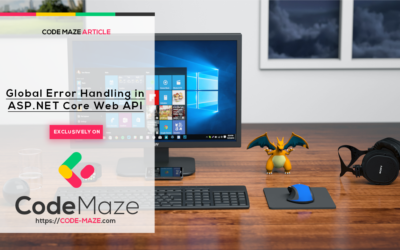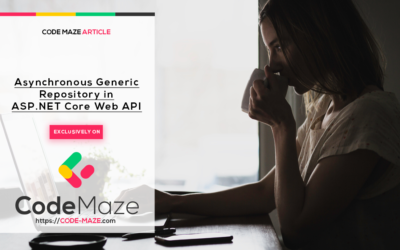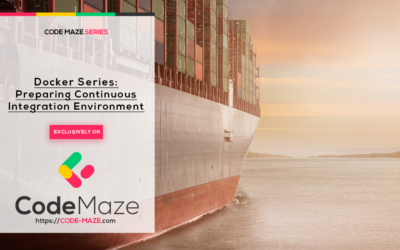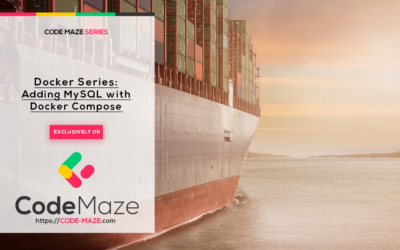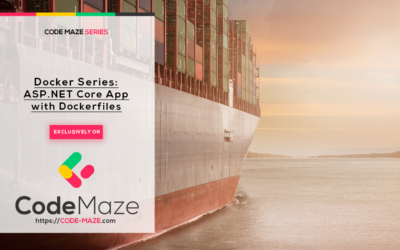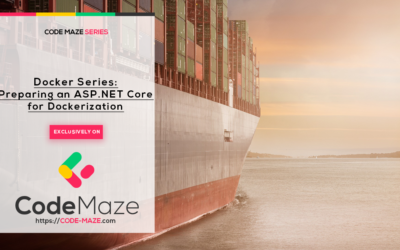Global Error Handling in ASP.NET Core Web API
The exception-handling features help us deal with unforeseen errors that could appear in our code. To handle exceptions we can use the try-catch block in our code as well as finally keyword to clean up resources afterward. [sc name="patreon-source-code"...
Unit Testing in ASP.NET Core Web API
Software maintenance is an inevitable part of the development process and one that could give developers the most trouble. We’ve all been there, whether we left our code in someone else’s care, or we’ve inherited some legacy code. This doesn’t necessarily need to be a...
Angular JWT Authentication with ASP.NET Core Web API
JWT Authentication in ASP.NET Core Web API
Securing a web application is one of the most important jobs to do and usually one of the hardest things to pull off. In this series, we are going to learn how to implement JWT authentication in ASP.Net Core Web API on the server-side and Angular on the client side....
Angular Development Best Practices
Implementing Asynchronous Generic Repository in ASP.NET Core
In this post, we are going to convert the synchronous code to asynchronous inside ASP.NET Core. First, we are going to learn a bit about asynchronous programming and why should we write async code. Then we are going to use our project from the .NET Core series and...
How to Easily Create a PDF Document in ASP.NET Core Web API
Let’s imagine that we have a .NET Core Web API project in which we need to generate a PDF report. Even though it shouldn’t suppose to be too hard to do something like that, we could end up losing too much time if we don’t know how to do it properly. In this article,...
ASP.NET Core Web API Best Practices
In this post, we are going to write about what we consider to be the best practices while developing the .NET Core Web API project. How we can make it better and how to make it more maintainable. While we are working on a project, our main goal is to make it work as...
Continuous Integration with TeamCity and Docker
In the previous post, we've discussed why continuous integration is important, what makes a good CI tool and after that, we've set up a basic TeamCity project to build our application using Docker. But continuous integration is much more than that, so in this article,...
Preparing a Continuous Integration Environment for Docker
So far in this series, we've gone through a lot of different concepts and learned a thing or two about Docker. We've learned how powerful it can be and how to build and run images in several different ways. We dockerized our ASP.NET Core application and added MySQL...
Docker Hub vs Creating a Local Docker Registry
In the previous part, we've learned how to utilize Docker Compose to tie multiple containers together with a single command. We've added a MySQL database to our ASP.NET Core application and successfully run it. Before proceeding further, we need to learn more about...
Continuous Integration Tools for Mobile vs Web. What’s the Difference?
Go mobile or go home! Mobile apps have taken center stage in the world of software. With seemingly unstoppable growth, the winner is the one who can deliver healthy code to the end user faster. This merciless race for the five-star rating has created a race for the...
Adding MySQL to ASP.NET Core App With Docker Compose
In the previous post, we've dockerized our ASP.NET Core application. In this post, we are going to add a MySQL database as another container and connect it with our application. Since we'll have multiple containers running we are going to introduce the Docker Compose...
Dockerizing ASP.NET Core Application With Dockerfiles
In the previous part, we've gone through some scenarios to show off the Docker's potential. We have also seen how to utilize Docker CLI and even made the simplest Dockerfiles to learn how to build the images using Docker. In this article, we are going to focus on...
Why Docker: The Docker CLI Through Examples
Now that we've prepared our ASP.NET Core application, we are going to learn how to install and use Docker on Windows 10, the reasons behind using Docker, and some useful Docker CLI commands. Understanding how the Docker CLI works is crucial, and you'll most definitely...
ASP.NET Core Web API – Linux Deployment
After the IIS deployment, the last part of this series is the .NET Core Linux deployment. We use Ubuntu 16.04 Linux version on our VM, but you may use any version you want. Whether you want to deploy an application to the local VM with the Linux OS or to the VM you...
How to Prepare an ASP.NET Core Application for Dockerization
In this part, we are going to apply some modifications to our ASP.NET Core application in order to prepare it for the dockerization process. To follow along with this part you need: .NET Core 3.1 SDK Windows 10 Git IDE of your choice (we use Visual Studio 2019) Docker...
ASP.NET Core Web API – IIS Deployment
Before we start the deployment process, we would like to point out one important thing. We should always deploy an application in the production environment as soon as we start with development. That way we are able to observe how the application behaves in a...
Working with Delete Requests in Angular
To finalize the coding part of the series, we are going to implement the logic for deleting the entity. To do that, we are going to create a form to support this action and send the DELETE request to our server. For the complete navigation and all the basic...
Handling PUT Requests with Angular and ASP.NET Core Web API
In this post, we are going to show you how to handle the PUT requests with Angular while updating the resources from the .NET Core Web API server app. Without further ado, let’s dive right into it. For the complete navigation and all the basic instructions of the...

